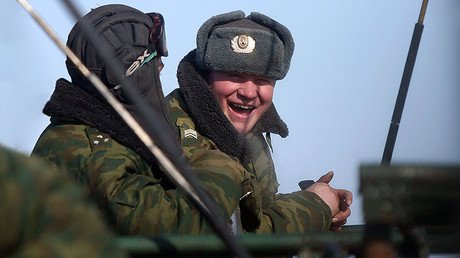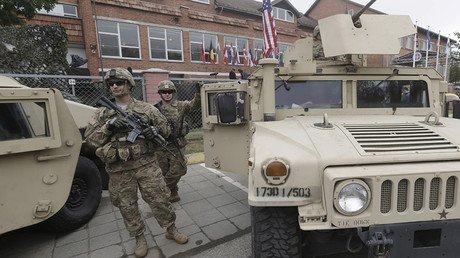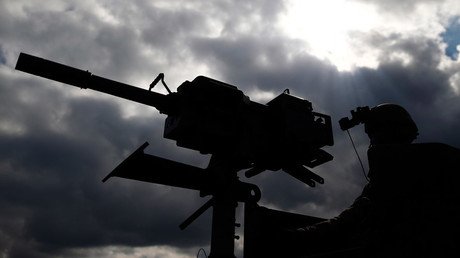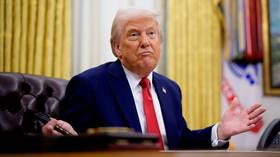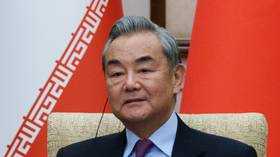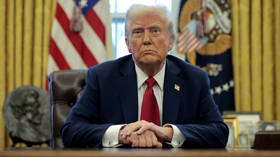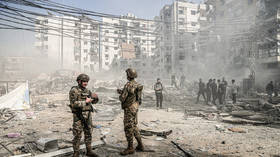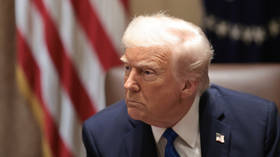‘US nukes in Germany are Cold War relics, should go in dustbin of history’ – top Russian diplomat
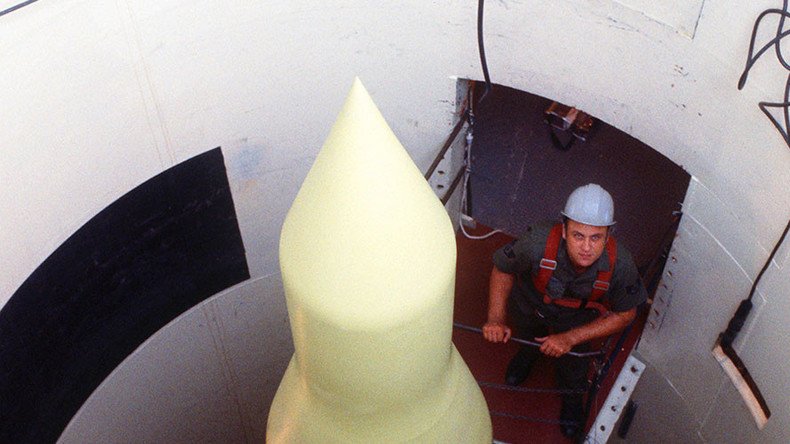
American nuclear weapons placed in Germany during the Cold War are relics of that era and should be removed as they no longer serve any purpose, according to a senior diplomat at the Russian Foreign Ministry.
“American nuclear weapons in Germany are relics of the Cold War, for a long time they do not serve the implementation of any practical tasks and are subject to being thrown down the dustbin of history,” Sergey Nechayev, chief of the Russian Foreign Ministry’s department responsible for relations with Germany, among a number of other European countries, said in an interview with RIA Novosti.
He noted that US nuclear weapons first appeared on the territory of the Federal Republic of Germany in 1953, and since then have been a constant presence – although their placement was only approved by the German authorities retroactively in 1958.
“All the related issues are regulated in the context of Germany’s obligations in the framework of its NATO cooperation. Since Berlin does not have full sovereignty in making decisions in this regard too, the topic is not the subject of [Russia’s] negotiations with the German side,” Nechayev noted.
According to Nechayev, the issue of the deployment of US nuclear weapons has been the focus of political debate in Germany for some time now.
“In March 2010, the majority in the Bundestag voted to call upon the German government to persistently work with US allies on ensuring the withdrawal of US nuclear arsenal from the country. […]
“The last time the public's attention was drawn to the presence of US nuclear weapons in Germany was a little over a year ago, when Washington decided to modernize 20 of its nuclear warheads, which are stationed at a base in Büchel [Rhineland-Palatinate region],” the minister said.
He also mentioned that among those most consistently expressing their opposition to the presence – or deployment – of US nuclear weapons in Germany were the Left Party, the liberal FDP and Alternative for Germany (AfD). This position is also shared by many members of the ruling parties.
“However, the German authorities do not dare to put the issue up before Washington,” Nechayev stated.
According to public data, since the end of the Cold War, US aerial nuclear bombs have remained in five countries on the other side of the Atlantic: Belgium, Italy, Germany, the Netherlands and Turkey. In August this year, German media reported that the US was planning to modernize its nuclear arsenal stationed at Büchel air base, placing there a latest generation V61-12 atomic bomb. It is estimated that between 10 and 20 nuclear warheads from the Cold War period are stationed in Büchel today. The area is under strict protection, with US soldiers also stationed there.
The German government has long wanted US nuclear weapons to be removed from the German soil, but so far this has not happened.
“We have by no means given up on this matter, but it is just as difficult as it has been over the past few years,” Foreign Minister Frank-Walter Steinmeier said in parliament last spring. And given Germany’s obligations to NATO, it may have become even more difficult.
READ MORE: ‘We’ve never sought enemies, we need friends’: Top quotes from Putin’s annual address
NATO has been actively deploying weapons to Eastern European states in the recent months, as well as conducting showy military drills right along Russia’s borders – including in the Baltic Sea. Its official position has long been that military activity in Eastern Europe was a defensive response to alleged Russian “aggression” in Ukraine. NATO said Russia was responsible for “annexing” Crimea from Ukraine, although the region voted to join the Russian Federation in March 2014 in a referendum, following the coup that overthrew Ukraine’s elected government. In September this year, NATO Secretary General Jens Stoltenberg said the bloc was ready to further increase its presence in the area, as a gesture of support to its Eastern European members. NATO has also just finished the ‘Iron Sword’ military exercises, which started on November 20 and involved 4,000 troops from 11 NATO countries. The drills were taking place in Lithuania, Russia’s neighbor and the largest Baltic nation.
Moscow has not let NATO activity go unanswered, as it repeatedly addressed it as infringement on Russia’s sovereignty and safety. In August this year, Russia deployed S-400 missile defense systems to Crimea, while ballistic Iskander missiles were deployed in the Kaliningrad exclave after an American ABM (anti-ballistic missile) system was stationed in two Eastern European NATO countries – Romania and Poland.
In his annual address to the Federal Assembly earlier this month, Russian President Vladimir Putin expressed regret that the time since the end of the Cold War had passed by in vain for NATO, which continues to “infringe on the interests of the Russian Federation.” Putin noted, however, that if unprovoked, Russia “does not want confrontation” and “does not seek enemies.”
“We are committed to a friendly, equal dialogue, to upholding the principles of justice and mutual respect in international affairs; we are ready for serious discussion on the creation of a stable system of international relations in the 21st century. Unfortunately, in this respect, the decades since the end of the Cold War have gone by in vain,” he said.
